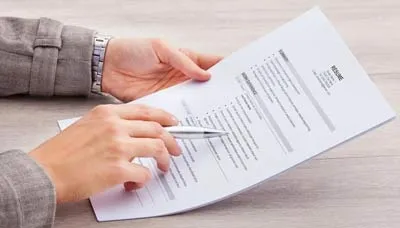Massachusetts
Learn More
Applications
- Staining
- Stamping
- Overlays
- Polishing
- Pumping
- Slab Jack
- Pouring
- Epoxy Flooring
Applications
- Patio
- Garage
- Countertops
- Basements
- Driveway
- Slabs
- Foundations
- Foundations
- Pavers
- Floors
- Pool Decks
- Sidewalks
- Walkways
- Steps
Masonry
- Chimneys
- Fireplaces
- Walls
Client Type
- Commercial
- Residential
- Industrial
How To Earn Your License and Become A Concrete Contractor In Massachusetts
Curious about learning how to obtain your contractor’s license and starting a business in the state of Massachusetts? We can help you out! We want to provide you with a comprehensive guide outlining the process of obtaining your contractor’s license. Massachusetts, like many other states, has its own rules and regulations that you will need to follow. We want to make sure that you are well-equipped and prepared when you decide you apply for your license, so let’s go ahead and get started!
When Is A
License Required?
No matter the type of contracting service you provide, you will need a license to operate in the state of Massachusetts. Concrete contractors will need to meet certain requirements in terms of experience and training. The state itself handles the licensing process through the Massachusetts State Board of Building Regulations and Standards. All contractors must also pass a licensing exam.
Here are some additional requirements:
- Before you apply for a license, you will need to register your business with the Massachusetts Secretary of State.
- Determine the type of license you’ll need based on the work and services you plan on providing.
- You must register as a Home Improvement Contractor and/or licensed as a Construction Supervisor before undergoing any projects.


Restricted and
Unrestricted CSLS
You have two primary types of licenses for supervising contractors in the state of Massachusetts: Restricted and Unrestricted CSLs. The Restricted CSL allows contractors to supervise projects on one and two-family dwellings with additional accessory buildings or structures. This license covers modifications, alterations, remodeling, and new installations.
An Unrestricted CSL will allow you to take on bigger jobs – it covers all buildings that are 35,000 cubic feet or less. This particular license also offers you the same options as a Restricted CSL – modifications, alterations, remodeling, and new installations. However, the difference is the size and scope of the projects you can work on.
Requirements
For Licensure
Now that you know about the different types of licenses, we want to discuss what’s required of you to obtain one. When applying in Massachusetts for a contractor’s license for the first time, you will need to submit the following information:
- The type of license you need to begin your business
- Documentation and references verifying your experience
- Your exam registration form
- Your exam scores
When applying for your license, you should remember that you can apply as an individual, a proprietorship, a partnership, or a corporation. Applying for the Construction Supervisor’s License will require you to pay a $150 submission fee. The Home Improvement Contractor’s Licensing submission fee is also $150. You will also need to pay a fee to the Guaranty Fund, the cost of which will vary depending on the number of people you plan on employing.


Taking
The Exam
Your exams are mandatory if your want to receive your license and begin your career as a concrete contractor. The international testing company Prometric will administer the exam and you can schedule where and when you want to take it after you register online. You must score at least a 70% on your exam to pass it. The exam will cover general knowledge as well as topics on Building Codes. The test is multiple-choice.
Insurance And
Liability Coverage
Before you submit your application, you must possess business insurance, liability insurance, and surety bonds. This way your business is prepared for those worst-case scenarios that can happen at any time. This includes any third-party accidents, damage, or bodily harm, as well as business liabilities, such as theft and faulty equipment.
Surety bonds provide you and your clients with extra financial protections for several different situations. For example, if you are not able to complete a project, then you won’t have to pay for any losses out of pocket. What will happen is the bond company will cover these expenses and then ask for reimbursement from the party that took out the bond.


Renewing
Your License
Massachusetts requires all contractors to renew their license, and the state offers you several different renewal options. However, Massachusetts always requires that you complete the continuing education courses before you submit your application for renewal.
The cost of renewing your license will cost $100 for each license, and the state grants you a one-year grace period to renew your license after it expires. If it’s two years past the expiration date, then you will need to retake your exam and reapply for a new license. You have three options when it comes to renewals:
Online: Log in or create an account with the Consumer Affair and Business Regulation website.
Mail or email: Fill out the renewal application form and email it to [email protected] or via mail at P.O. Box 414376, Boston, MA 02241-4376.
In-person: You can renew your license in person at 1000 Washington St., Suite 710, Boston, MA 02118.

5687
Happy Clients

905
Projects Done

3596
Consultation

576
Cups of Coffee


